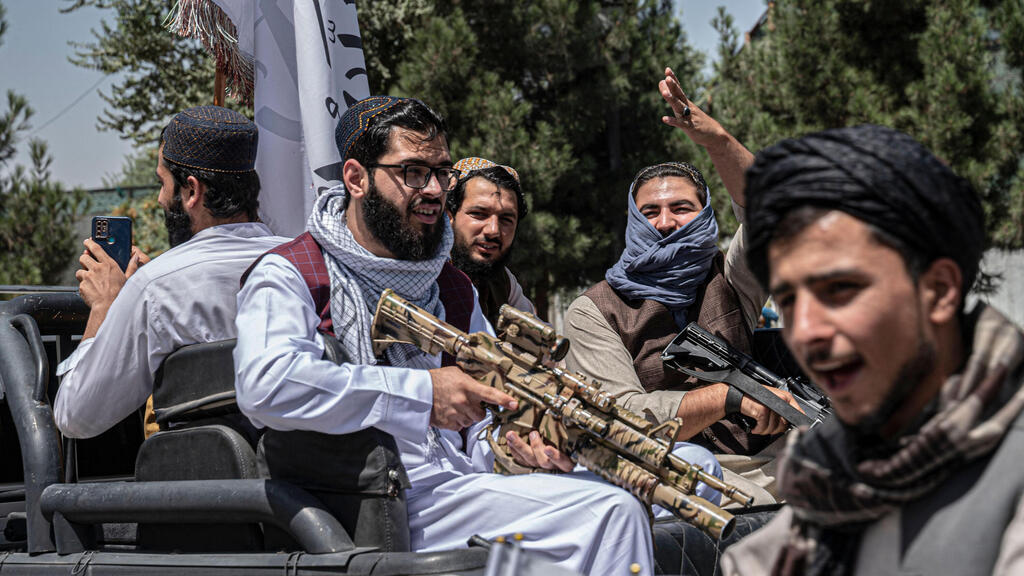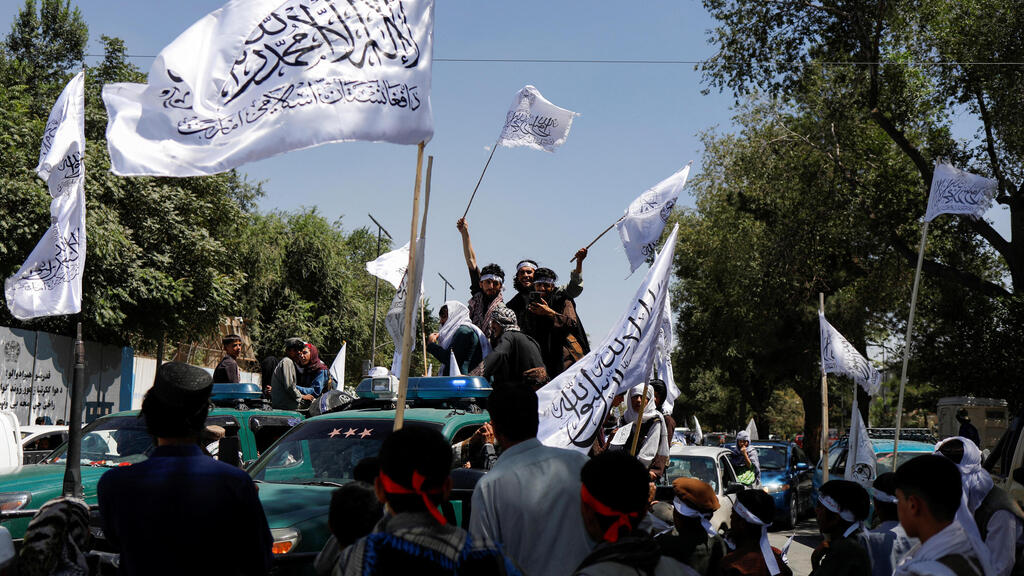Getting your Trinity Audio player ready...
Fireworks by the Taliban in Kabul after the completion of the US withdrawal from Afghanistan
(Video Reuters)
The Taliban on Tuesday marked two years of rule in Afghanistan after returning to power, and celebrated the occupation of Kabul and the overthrow of the government that has not received recognition from the international community. On August 15, 2021, at the end of a quick occupation operation and in the shadow of the American and then NATO withdrawal from Afghanistan, the Islamist terrorist organization returned to power after 20 years
More stories:
The anniversary of the return to power was designated as a holiday in Afghanistan, and across the country the Taliban held celebrations and parades. Flags of the Islamic Emirate of Afghanistan -- the Taliban's formal name for the country -- fluttered across the capital Kabul. "Death to the Europeans, death to the Westerners, death to the Americans, long live the Islamic Emirate of Afghanistan," Taliban supporters chanted at the celebrations in the city of Herat.
6 View gallery
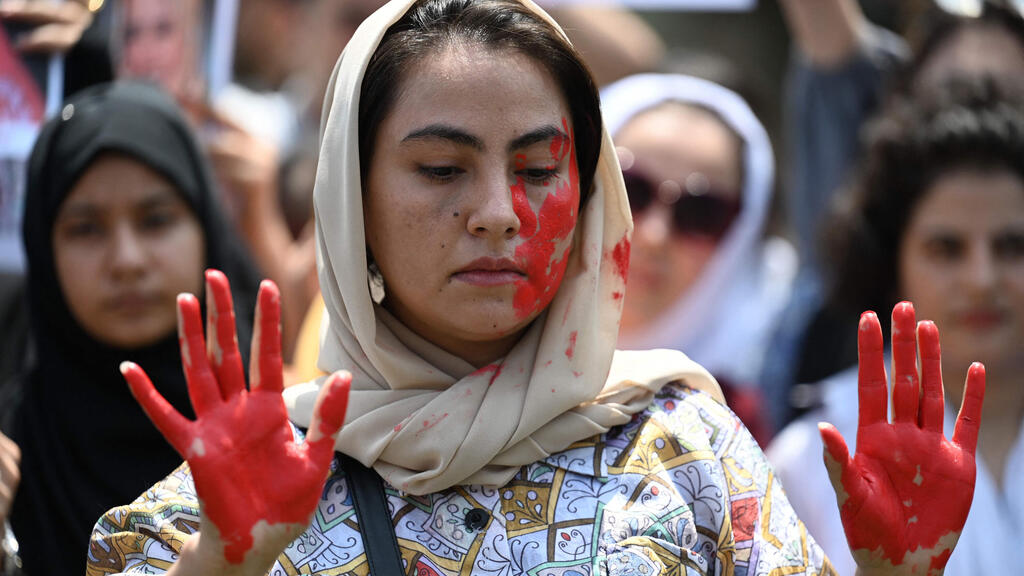

Afghan women in Pakistan protest against the Taliban regime in Afghanistan
(Photo: Aamir QURESHI / AFP)
Since the takeover, Taliban authorities have imposed their strict interpretation of Islam, with women bearing the brunt of laws that the United Nations has termed "gender apartheid."
A statement from the authorities hailed the victory that was able to "pave the way for the establishment of the Islamic system in Afghanistan"
"The conquest of Kabul proved once again that no one can control the proud nation of Afghanistan" and that "no invader will be allowed to threaten the independence and freedom" of the country, it said.
6 View gallery
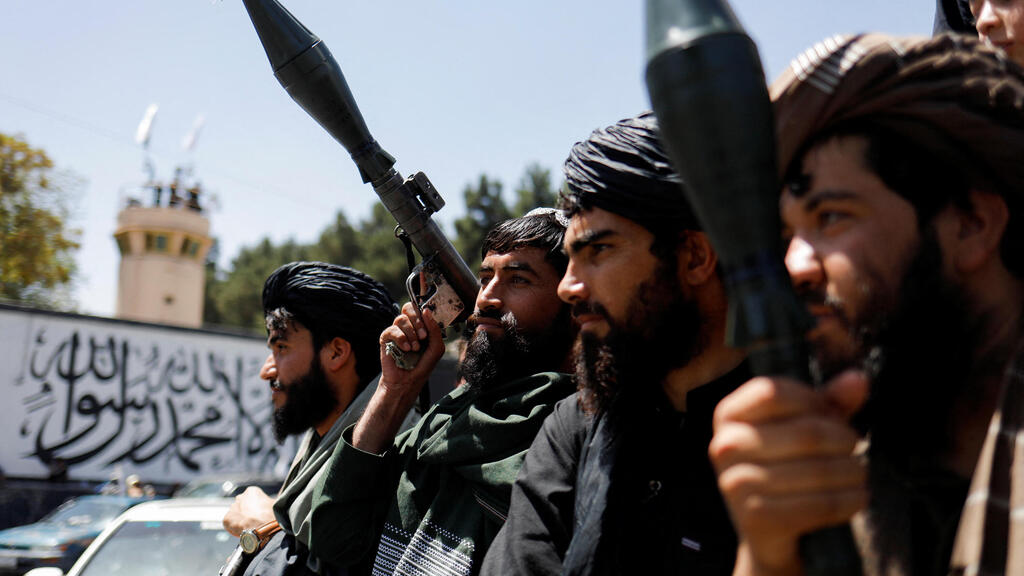

Taliban soldiers near the empty US embassy in Kabul, Afghanistan
(Photo: Reuters/Ali Khara)
Hundreds of Taliban supporters, from elderly men to young boys, gathered near the abandoned US embassy building in Kabul, one of the many that now stands empty -- the Taliban government is still not formally recognized by any other country.
US-made military vehicles, claimed by the new Taliban rulers when they were left behind by international forces after a weeks-long chaotic withdrawal, rolled past the open gates of the fortified embassy walls.
In Kandahar, the cradle of the Taliban movement and from where reclusive Supreme Leader Hibatullah Akhundzada rules by decree, a military parade was cancelled and then moved to a military compound, officials told journalists.
Restrictions on the rights of women -- squeezed from public spaces, employment and education -- have been key obstacles to recognition and aid, which was slashed as foreign nations were wary of dealing with Kabul's new rulers.
6 View gallery
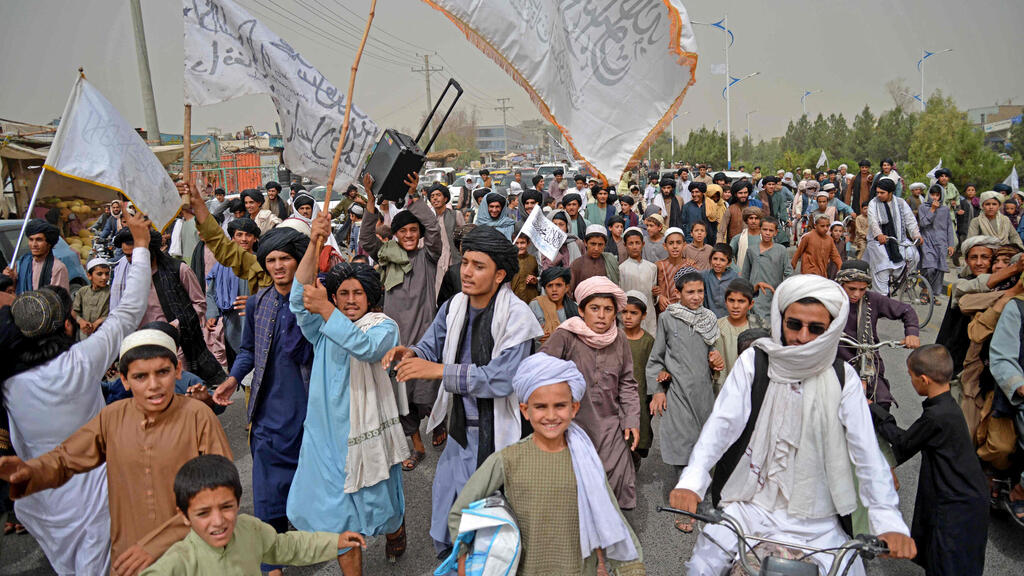

Taliban celebrates two years since coming to power in Kandahar, Afghanistan
(Photo: Sanaullah SEIAM / AFP)
Women in particular have seen avenues to work closed, most recently with the shuttering of thousands of beauty parlors across the country.
Non-governmental groups have marked the anniversary by again denouncing the Taliban authorities' treatment of women.
6 View gallery
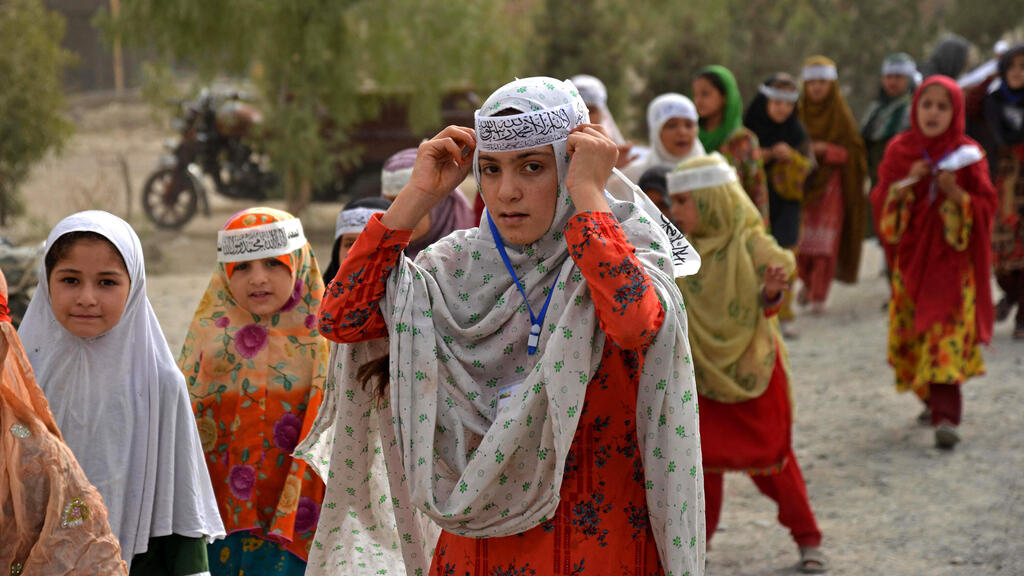

Young people in Kandahar celebrate two years of Taliban rule
(Photo: Sanaullah SEIAM / AFP)
"We strongly condemn ongoing and escalating gross human rights violations by the Taliban especially against women and girls and the lack of an effective response from the international community," said a joint statement from 10 rights groups, including Human Rights Watch and Amnesty International.
On Tuesday, in the capital of neighboring Pakistan, more than 100 Afghan women protested, carrying a poster that read: "15 August Black Day in Afghanistan."





